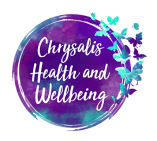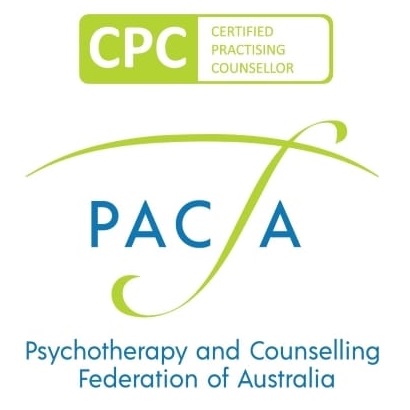Counselling provides many benefits. How much time do you spend taking care of your mental and emotional wellbeing? Everywhere we go it seems we are told how to take care of our physical bodies – exercise more, eat less fat and sugar. We are told about the latest harmful effects of smoking, drinking alcohol and taking drugs.
There is a deep programming in our Western culture that prizes independence and self-sufficiency. Rather than appearing weak we should ‘just get on and deal with it’. This leads to compounded distress, lowered sense of wellbeing, and an increased sense of isolation or detachment.
As social beings, we are connected to, and affect, each other.
How often do you try to convince yourself you don’t need help sorting through a problem, try to forget it, or brush it away as not important, only to have it return, bigger and more problematic than ever? And when was the last time you truly felt heard and understood when trying to talk to someone about a problem?
We see it as normal to go to the doctor when something is not right physically, yet the stigma of shame and embarrassment of seeking therapeutic help continues to proliferate. It implies that you are crazy, and the stigma of mental illness is deeply entrenched historically. This is concerning to me, because people are not seeing therapy as a model of wellness, rather one of illness.
Here are 5 reasons why counselling is beneficial for everyone; not necessarily just when a life crisis looms large:
1. Exploring what’s underneath unhealthy coping mechanisms
What are your go-to coping mechanisms for managing problems and stress? Naturally as human beings we all suffer from stress and worry throughout our lives. Consuming alcohol, taking drugs, smoking, isolating yourself, and eating are all ways of helping us feel calm and happier in the short term, but none of these actually deal with the root cause.
If any of these start to feel like they are not within your control, or are starting to negatively impact on your daily life in some way, this may be an opportunity to safely explore issues within a counselling setting.
2. Dedicated time just for you
Particularly if you are the type of person who tends to look after the wellbeing of others before yourself (even if you enjoy it), it is crucial to take time to honour your needs and give yourself time just to look after you. Have you ever heard the saying “you can’t pour from an empty cup”? Counselling is a great investment in helping to keep your “cup” full. It is not a selfish act. It also role models to others around you that you believe that you are worth the time to look after yourself.
3. Putting words to feelings has a therapeutic effect
Research has shown that talking about your feelings (this includes journalling) actually has a significant effect on your brain. In a brain imaging study done in the USA (https://www.sciencedaily.com/releases/2007/06/070622090727.htm), it was shown that by verbalising how you are feeling, actually reduces the intensity of the emotion.
Do you have high expectations of yourself? Do you notice how many times a day you chastise or criticise yourself for not living up to those expectations, or tell yourself you “should” do this or “should” be more like that, and how that makes you just feel worse about yourself?
Do you worry how people will judge you if you speak your problems out loud? In the safety and privacy of counselling, every issue a client brings is important, valid, and safe for exploration. A counsellor has been trained to listen deeply, to pick up what is said, and more importantly, that which is not said.
4. Unhelpful patterns seem to be appearing in your life and you don’t know how to make change
This can apply in many different situations. If you are single and you would dearly like to be in a long-term, deeply loving relationship but this keeps eluding you, therapy can assist with gaining clarity around why this might be happening. Some people continually find themselves in situations where they are taken advantage of, or treated like a ‘doormat’. Self-esteem and self-worth are so fundamental to every aspect of our life, it cannot be underestimated how important it is to explore these issues.
5. You would like to improve your relationships
We seem to spend our lives trying to live up to some societal ideal, sometimes never stopping to question what that really means for us. We are sold the notion that our romantic partners are somehow supposed to know what we want and are able to fulfil us emotionally. Once the golden glow around our beloved fades and we start see their human-ness (and what that can trigger within us), can come as a deep shock to a lot of people. And yes, therapy can be of assistance in a relationship, even if the partner resists attending.
As parents, there is huge pressure to appear like we have it all together. Mums feel enormous pressure to return to their pre-baby body, and dads face the challenge and stress of balancing work and home life perfectly. How quickly we can feel like failures when we perceive we are not measuring up to perceived expectation. The strain on a couple after the baby arrives cannot be fully understood until it happens, especially if post-natal depression is a factor. The parenting journey can benefit enormously in the long-term from therapy in assisting you to improve relationships within the family.
So will therapy make me happy?
Many people list their therapy goal “to be happy”. What does this mean to you? Realistically, being happy cannot be a perpetual state of being, just as none of the other emotions can be – thank goodness! All emotions serve a purpose as our internal navigation system, so would you want to deny that? Therapy offers a way of gaining clarity, perspective, and self-awareness so that you can make choices that better serve you and are in line with your authenticity. This in turn creates a sense of wellbeing, which I believe is much more important (and achievable) than a perpetual state of happiness.
There are many other reasons to seek counselling of course, however my aim with this blog post has been to change the perception that seeking counselling doesn’t have to mean that something is ‘wrong’ with you. It can be a pre-emptive way of taking care of your wellbeing, mental and emotional health. Counselling is a very healthy investment of your time and money. It has been shown that it works for the long term. Rather than being a sign of weakness that you can’t manage your life, it is truly a sign of strength and courage to say you need help.
Get in touch with Chrysalis Health and Wellbeing for your free 20 minute consultation to find out what your needs are.
About Kate
Kate is a counsellor and energy healer based in Sydney’s Hills District. She has identified a common thread amongst trauma sufferers; and that is that they appear to suffer from similar physical symptoms and ailments, along with a history of unresolved trauma of some description. These can have massive and devastating impact in all areas of a person’s life. Kate supports her clients on their healing journey in a holistic sense. This involves helping to process and resolve trauma in the body, help clients choose appropriate nutrition, and address lifestyle issues and old belief patterns that no longer serve them. Clients report feeling calmer, more in control, and with greater self-awareness able to make self-affirming life decisions from their core of inner knowing.






